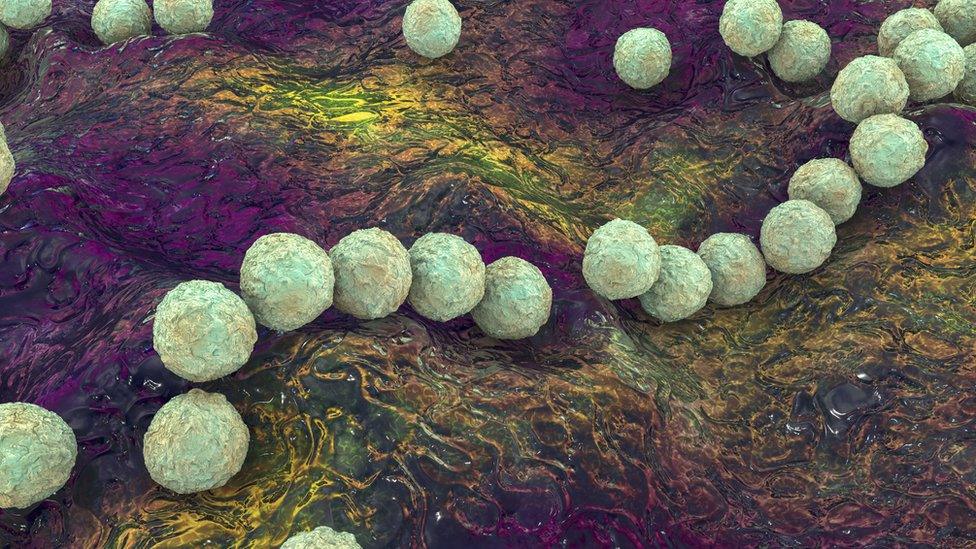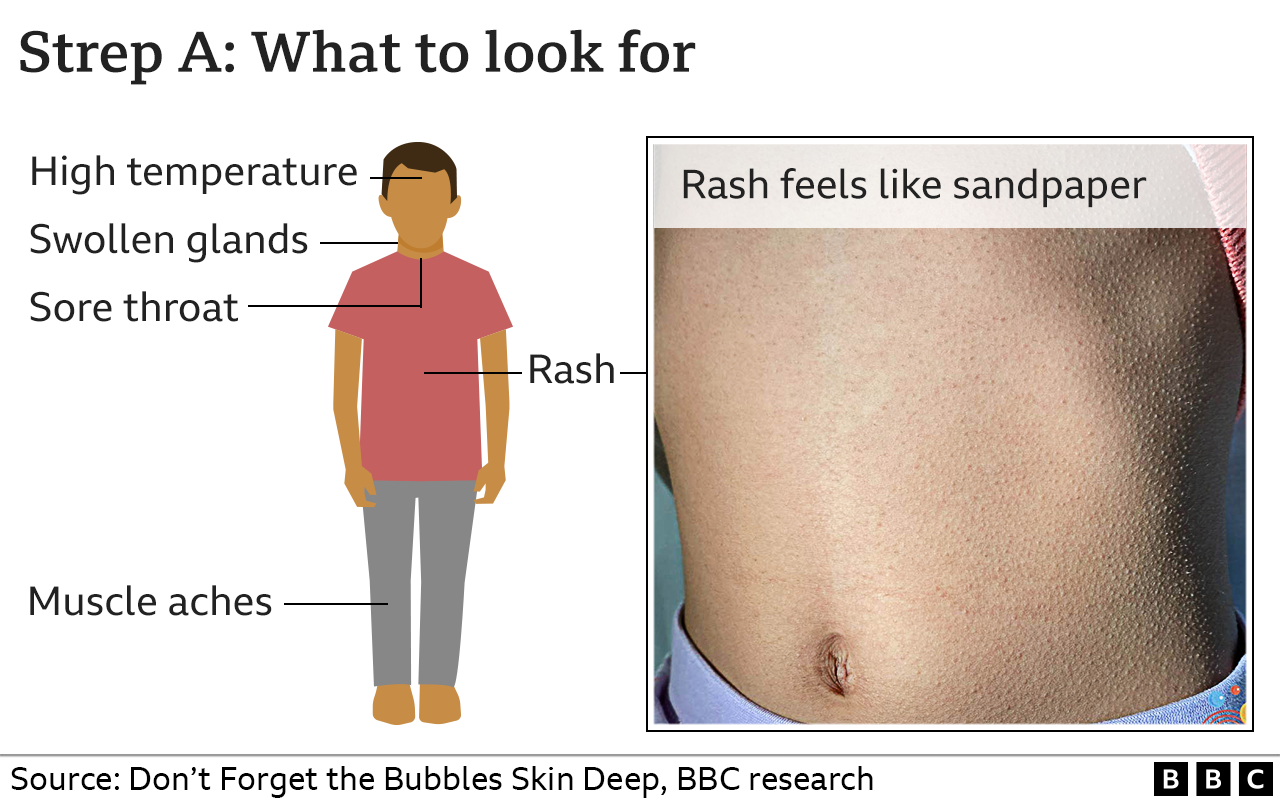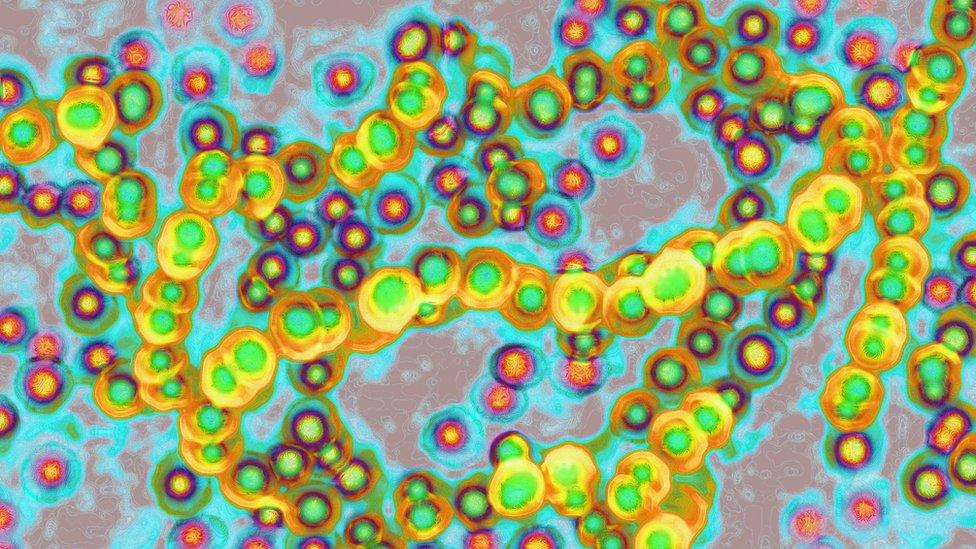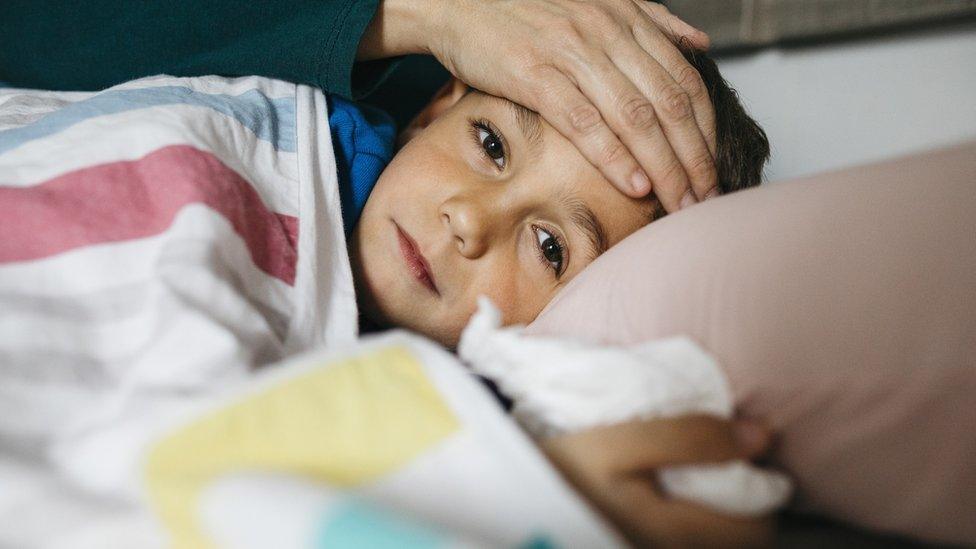Deaths of two children with Strep A 'not unusual'
- Published

The deaths of two children in Scotland with the Strep A infection is not unusual at this time of year, according to the national clinical director.
Professor Jason Leitch said Scotland was experiencing the highest number of Strep A infections since 2017.
But he said it was a very mild disease in the "extreme majority" of children and the elderly.
Public Health Scotland confirmed that two children under 10 died with the infection between October and December.
Strep A cases are usually mild, causing illness ranging from a sore throat to scarlet fever, but on rare occasions can develop into invasive Group A (iGAS) infection.
The two children's deaths are among seven linked to the iGAS infection recorded in Scotland between 3 October and 25 December.
A post on the PHS website, external said there had been "between zero and seven" similar deaths during the same time period in previous years.
By comparison, 94 people have died in England within seven days of a iGAS diagnosis since September, according to the UK Health Security Agency (UKHSA). Of these, 16 were 10 or younger.
Professor Leitch told BBC Scotland the children's deaths were tragedies but the number of them was "not unusual for this time of year".
"What we don't know is how big this spike is going to be in Strep A cases over the next few days and weeks," he said.
The national clinical director said an increase in cases was to be expected every few years and that this was the largest number of infections since 2017.
"The key here, apart from the obvious tragedy of today's news, is that in the vast majority of children, in the extreme majority of children, and in the elderly, this is a very mild disease," he added.
"You can look after it yourself, you can look after kids at home, you can get all the information you need on NHS Inform, external."

In a post on Twitter, external Scottish Health Secretary Humza Yousaf said: "Every death is a tragedy, particularly those of young children, my thoughts with families and loved ones affected.
"Thankfully most cases of Strep A present as mild illness and can be treated with antibiotics."
Mr Yousaf said he was working with the UK government to ensure there were adequate supplies to treat the illness.
He added: "Where localised shortages of first line treatments occur there are alternative and effective antibiotics available."
The UKHSA has said a rise in Strep A cases this year is most likely due to high amounts of the bacteria circulating and increased social mixing.
PHS said that in the week ending December 25 there were 869 laboratory reports of Group A Streptococcus (GAS), a reduction from 1,079 the previous week. This compares with between 300 and 480 reports per week during peaks observed in the period since 2016.
The PHS report stated: "Although increases in GAS were reported in recent weeks in Scotland, iGAS infections levels for 2022 have been generally stable and similar to previous years."
In the week ending December 25, there were 15 iGAS cases reported across all age groups, compared with 13 in the previous week. This compares with between 12 and 18 cases per week during peaks observed in previous years.
Data from the beginning of October to December 25 2022 shows that PHS has received reports of 20 iGAS cases in children under 10.
When to see medical advice
Parents are being urged to look out for symptoms and to promptly contact their GP or NHS24 if they have any concerns.
UKHSA advises people to call 999 or go to A&E if:
your child is having difficulty breathing - you may notice grunting noises or their tummy sucking under their ribs
there are pauses when your child breathes
your child's skin, tongue or lips are blue
your child is floppy and will not wake up or stay awake

What is Strep A?

Group A streptococcal (GAS) infection is caused by strains of the streptococcus pyogenes bacterium
The bacteria can live on hands or the throat for long enough to allow easy spread between people through sneezing, kissing and skin contact
Most infections cause mild illnesses such as "strep throat" or skin infections
It can also cause scarlet fever and in the majority of cases this clears up with antibiotics
On rare occasions the bacteria can get deeper into the body - including infecting the lungs and bloodstream. It is known as invasive GAS (iGAS) and needs urgent treatment as this can be serious and life-threatening

Related topics
- Published9 December 2022

- Published3 December 2022
